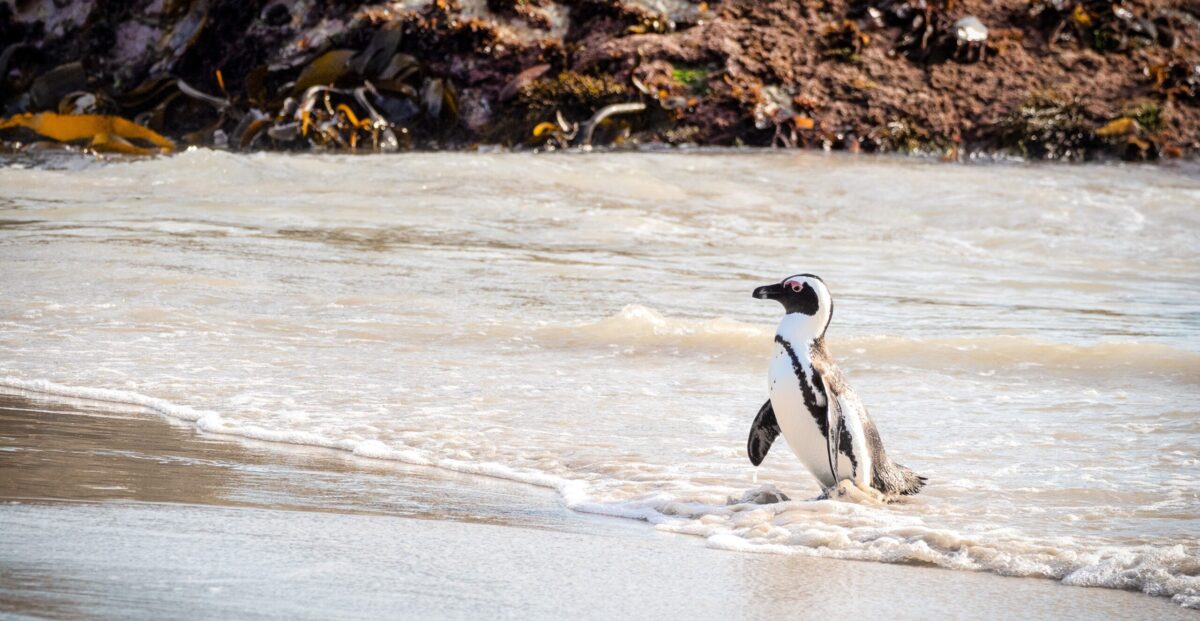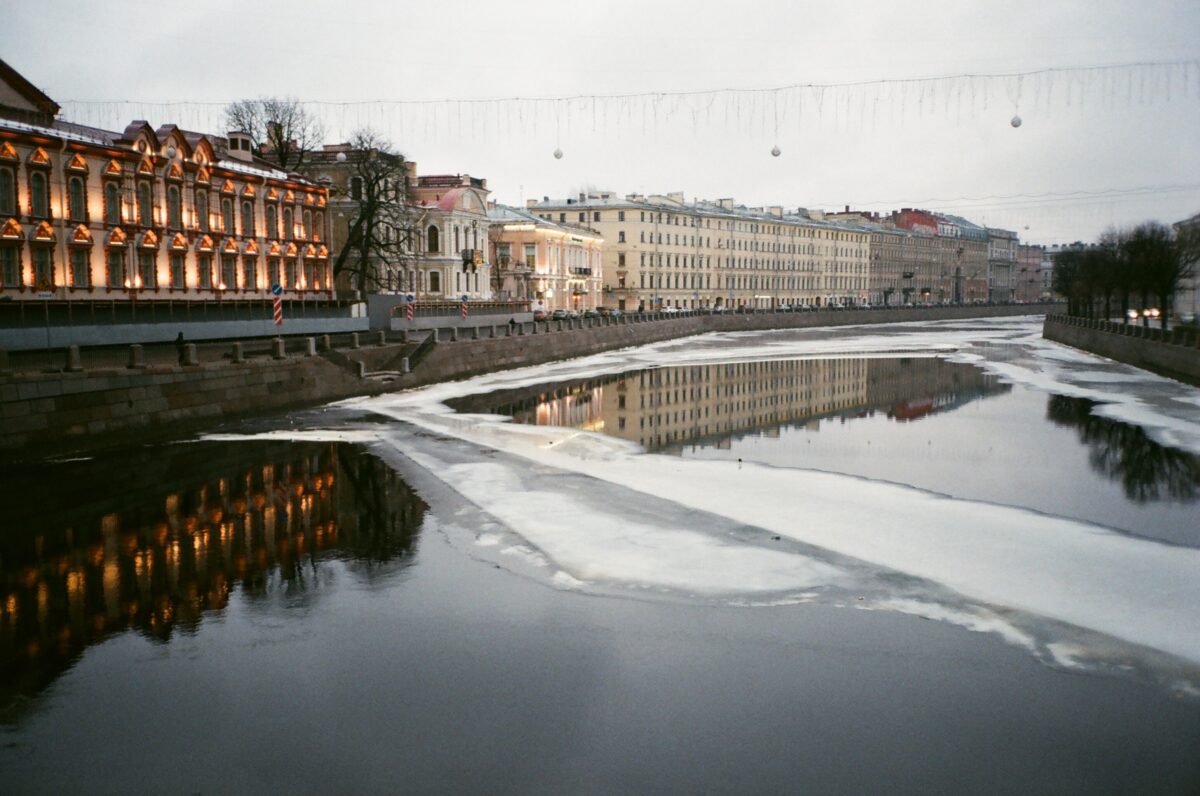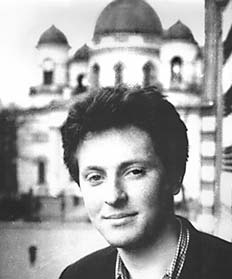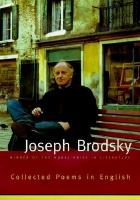About the Author

Feodor Svarovsky was born in Moscow in 1971. At the age of 19, he emigrated to Denmark. In 1997, he returned to Moscow and worked as a journalist and editor at Vedomosti, then at the Paulsen Publishing House and Esquire. In 2007, he published his first book of poetry Все хотят быть роботами (Everybody Wants to Be a Robot). He is also the author of Путешественники во времени (Time Travelers, 2009); Слава героям (Glory to the Heroes, 2015). In 2011, Svarovsky participated in PEN’s New Voices reading series at the National Arts Club in NYC. He currently lives in Montenegro with his wife and amazing cats.
“When the Antarctic ice melts”
Fyodor Svarovsky hardly needs any introduction. One of the best contemporary Russian poets, he is well known in Russia, and readers admire his poetry, both romantic and metaphysical. He is a universal poet. The appeal to the world of nature and feelings, their projection into the future – these are the main components that create the versatility of Svarovsky’s poetry and cause the readers’ love.
As soon as Svarovsky’s first book, Everybody Wants to Be a Robot (Все хотят быть роботами), was published in 2007, it was an instant hit with literary critics and readers. Even among the diverse and vibrant voices of contemporary Russian poetry, his poems immediately stand out for their fantastic adventurous spirit and unusual poetic style. His book was nominated for the Andrei Bely Prize and won the prestigious Moscow Schyot Prize for the best debut poetry collection. Since then, Svarovsky has played a significant role in the revival of the ballad genre, or narrative poetry written in an “epic” mode. In the process of renewing the genre over the past decade, it has often been defined as a “New Epic”. It represents an original artistic approach to understanding complex reality as a scene of interaction between various forces and actors. Its main characteristics are a narrative text without an author’s linear voice or lyrical statement, the predominance of metaphysical meanings and unusual themes, and a fascinating plot. They were defined in the famous Manifesto (2008). This type of poetry, postmodern in nature, often refers to metaphysical forces beyond the control of the individual.
This trend in Russian poetry continues and flourishes in recent days. Many contemporary poets explore the long ballad genre at the new level of metaphysical comprehension of the world. Among them are such prominent poets as Maria Stepanova, Leonid Schwab, Arseny Rovinsky, Stanislav Lvovsky, Linor Goralik, Pavel Goldin, Andrei Rodionov, Sergei Kruglov, and others.
Drawing on the potential of the “new epic” form, Svarovsky’s first works were bizarre and sometimes grotesque – they introduced themes and heroes unusual for Russian poetry: robots fighting in civil wars, aliens stranded in the Moscow suburbs, or post-Soviet warriors acting in extraordinary circumstances and sometimes in timeless space. In the poetic space of Svarovsky’s first book, Everybody Wants to Be a Robot (Все хотят быть роботами), humans and robots, heroes and villains interact in bizarre circumstances, moving freely through time and space. Besides the unusual plot, some critics immediately noted the features of Anglophone postmodern literature: fragmented narrative, paradox, dry humor, and irony. One of the hallmarks of his first book was the attribution of infinite human emotions to robots, which expanded the poetic space to universal proportions. In one of the most poignant stanzas, the tragic situation in which the robot finds itself is described with almost human sentiment:
знаешь
у роботов ангелов нет
никто не беспокоится
не летит
не закрывает
невидимыми крыльями
нас в пути
поэтому в тяжёлый момент
мы обращаемся напрямую
и вот я прошу
кислоты и воды
но
главное
я тоскую
* * *
you know
robots don’t have own angels
no one worries
no one’s watching us
or covers us with
their invisible wings
on our path
so in times of need
we deal with it directly
and here I’m begging
for acid and water.
but
above all
I’m aching.
Written as contemporary ballads without the visible presence of the author, Svarovsky’s poems meet the aesthetic demands of postmodern literature. They address the realities of modern society, both technologically advanced and aesthetically sophisticated. The unusual settings and characters – space pirates, robots engaged in galactic wars, and humans communicating with robots – perfectly met the public’s desire for literary forms and characters beyond the usual lyrical standard.
This debut brought Svarovsky deserved fame, many of his poems became famous among readers, and the author became one of the most popular and admired poets in Russia. The reason for this phenomenon is not only the author’s poetic talent, but also his style, which appeals to the reader’s imagination. Svarovsky explained: “The author describes events whose reality or apparent fiction does not matter for achieving the aesthetic effect, since the main goal of the ‘new epic’ is mostly artistic – to provoke an aesthetic, emotional, or intellectual reflection”(Manifesto, 2008).
Like the heroes of ancient tragedies, his characters often face difficult choices and sacrifice themselves. The poet’s detached voice evokes emotions beyond our comprehension. Behind the captivating plot hides the timeless epic story of a man overcoming despair and tragic circumstances. Entertainment is replaced by compassion, and readers find themselves captivated by a dramatic story, as in the poem “Mongolia,” about the incredible bond between an old robot warrior and a little Japanese girl, Aiko, in a desolate land devastated by endless wars (Everybody Wants to Be a Robot). As a result, we react to the fantastic events in Svarovsky’s poems as if they really happened, and indeed we all coexist in a complex universe where time, space and nature are interconnected.
In Svarovsky’s recently published book, Glory to the Heroes (2015), new themes and metaphorical systems emerged. In the book’s preface, Oleg Pashenko emphasizes that Svarovsky has become more open about his Christian eschatological ideas, including the “image of water, sea or seashore as the Kingdom of God.” His poetic style has become more sophisticated and reflected new ontological dimension of reality, “when a person sitting in front of the screen, writing or reading, and at the same time swimming or diving in the notional sea in such a way that the reality is not alien but exists as an additional dimension, as another layer of ontological freedom” (Pashenko, Preface).
In an interview with Sergei Sdobnov about his book (Colta, Oct.25 2015), Svarovsky emphasized that ”for the postmodern and other consequent paradigms, time does not exist; like any other categories, it is an easily controllable part of artistic creation. Since the author isn’t identified with the text, his or her personal sense of time isn’t important.” In this respect, his poetry is in tune with the work of such Russian postmodern prose writers as Mikhail Shishkin, Valery Votrin, and others. The objects in them are only approximations to an ideal world.
Timelessness and the idea of a universal world in which man lives in absolute harmony with all living beings are embodied in his poetic texts. It echoes Plato’s idealistic conception of the unity of all things, but it is also an integral part of the poet’s Christian worldview:
life is love
people are immortal
and glory
glory to the heroes
Far from being a “banal slogan,” as the recent History of Russian Literature (Oxford: 2018) suggests, or an “irony,” this is one of the most powerful humanist messages in contemporary Russian poetry. As such, it can’t be trivially dismissed; it is the only way out of the crisis of human civilization in recent years. All this makes Svarovsky’s poetry relevant to our times, when we all suddenly realize that the survival of humanity depends on harmony with nature, on a return to humanity in politics and society, on refusing to mistreat animals and other living beings, on the love and heroism of the many nameless heroes who fight for all of us. This may seem idealistic in today’s cruel world, but ultimately only poetry can explain life in its entirety.
We are pleased to present some of Feodor Svarovsky’s poems in translation to English-speaking readers. Authentic poetry always loses some of its beauty and magic in translation, but we have tried to preserve as much as possible the originality of the poetic texts and the author’s voice.
Alice and Tiger
In my early childhood
it was absolutely necessary
to keep a super small dog
the size of my pinky
and honestly
a similarly sized little girl
so, they fit in my pocket
the dog was called Tiger
and the girl’s name was Alice
I loved them
I wanted to own a swimming pool too
but a weird-shaped one
long
with curves
with the houses
under the water
where we would be at home
and there
we would swim between the walls
in the crystal water
devoted to each other until death
and absolutely immortal
Day at the zoo
1.
we went to the zoo
but we didn’t see a crocodile
because he was lying at the bottom of a concrete pit
and didn’t float up
and we didn’t see the hippo either
my parents said: look, there are his ears and nostrils
but I saw
neither ears
nor nostrils,
polar bears
and brown bears alike sat in their cages
the giraffe was cold
and didn’t come out
monkeys and lemurs were hiding
eagles were sleeping
capybaras were peeking out of their homes
with their backs to the audience
the elephant was standing in the distance
and it was hard to see him
just some pointless
deer
and bulls
which could be seen everywhere
were posturing in plain sight
all of a sudden, I’ve got an upset stomach.
and they didn’t buy cotton candy for me
it was Saturday
on my birthday
seventy-two-and-a-half years
ago
2.
it was a special day
everything went awry from the start
giraffe had a stomach ache
crocodile had a toothache
monkeys and lemurs were bored and cold
eagles were sad and cold
capybaras were sleepy and cold
hippo was cold
brown bears were cold
and even polar bears were cold
and the elephant was appalled
deer and bulls
wandered in some despair
nobody remembers now who it was
but one of the animals
or not of them
but definitely someone
said:
Animals, so be it, it is okay,
one day it will end
it will be over
and we’ll go
home
When the Antarctic Ice Melts
when the Antarctic ice melts
we will be happy
after many rainfalls
dry bones will become wet
gardens will bloom
on Queen Maud’s land
on the Queen Victoria Peninsula –
white tents flitter in the wind
and meadows stretch from one lake to another –
the bird snatches fish and bread from our hands
everything will be be fine
all the dead will come back to life
all the good
except the bad
oh, glass cities
oh, the land rising from the ice
His Majesty the Emperor
is swinging
ankle-deep in warm water
walking
towards the green coast
just a penguin
imperial
Glory to the Heroes
four Canadians
saved the world from a genetic catastrophe
one Armenian invented a new type of rocket fuel
and a treatment for cancer
one Russian sacrificed himself
he shut down the reactor and saved the international space station
one Englishman gave his liver to a wounded journalist
who came back from the California coup
one Tatar during the ethnic conflict in Southeast Asia
saved 240 Malaysian babies
one Frenchwoman died for the freedom of Phobos in the dungeons
of Deimos
one Cardian
was supposed to attack Earth on a neutrino-driven ship
but
after seeing the blue planet
he turned the ship toward the sun
life is love
people are immortal
and glory
glory to the heroes
Слава героям
четыре канадца спасли мир от генетической катастрофы
один армянин изобрёл новый вид ракетного топлива
и лекарство от рака
один русский пожертвовал собой
отключил реактор и спас международную космическую станцию
один англичанин отдал свою печень раненной журналистке
вернувшейся после переворота в Калифорнии
один татарин во время этнического конфликта
в Юго-Восточной Азии спас 240 малайских младенцев
одна француженка умерла за свободу Фобоса в застенках
Деймоса
один картадианин
должен был атаковать Землю на корабле с нейтринным приводом
но
увидев синюю планету
он развернул корабль в сторону солнца
жизнь есть любовь
люди бессмертны
и слава
слава героям
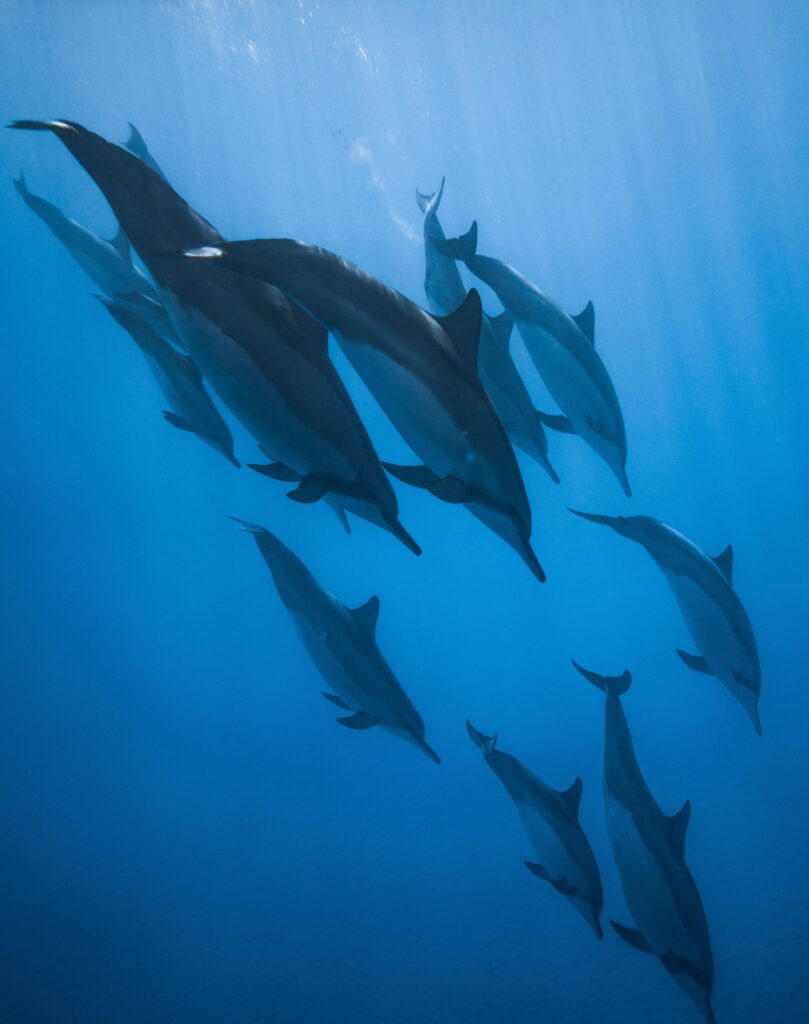
Brothers
the elephant would never
start fighting the whale
not that the whale is stronger than the elephant
it’s that a war between them is impossible
these animals are brothers
together they swim under the water
the whale is young
and lively
the elephant is jovial and young
the whale’s fin cuts through currents in the depths
the elephant’s trunk flaps overhead
mermaids glide after them
they are the people and gorillas’ brothers
Aristotle
wrote about it
and Plato at the Academy spoke
of it
Elena Dimov
Charlottesville, 2020
